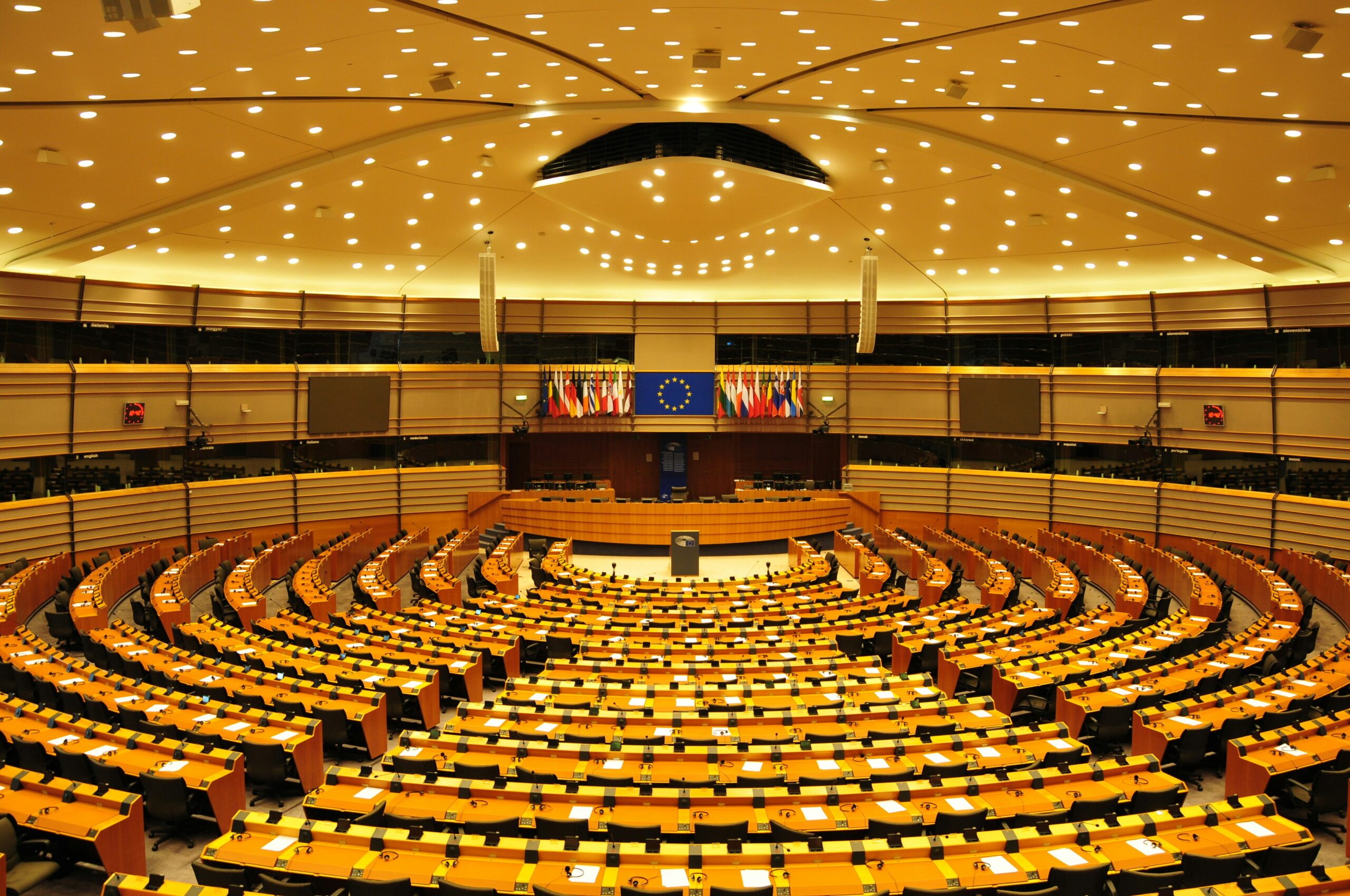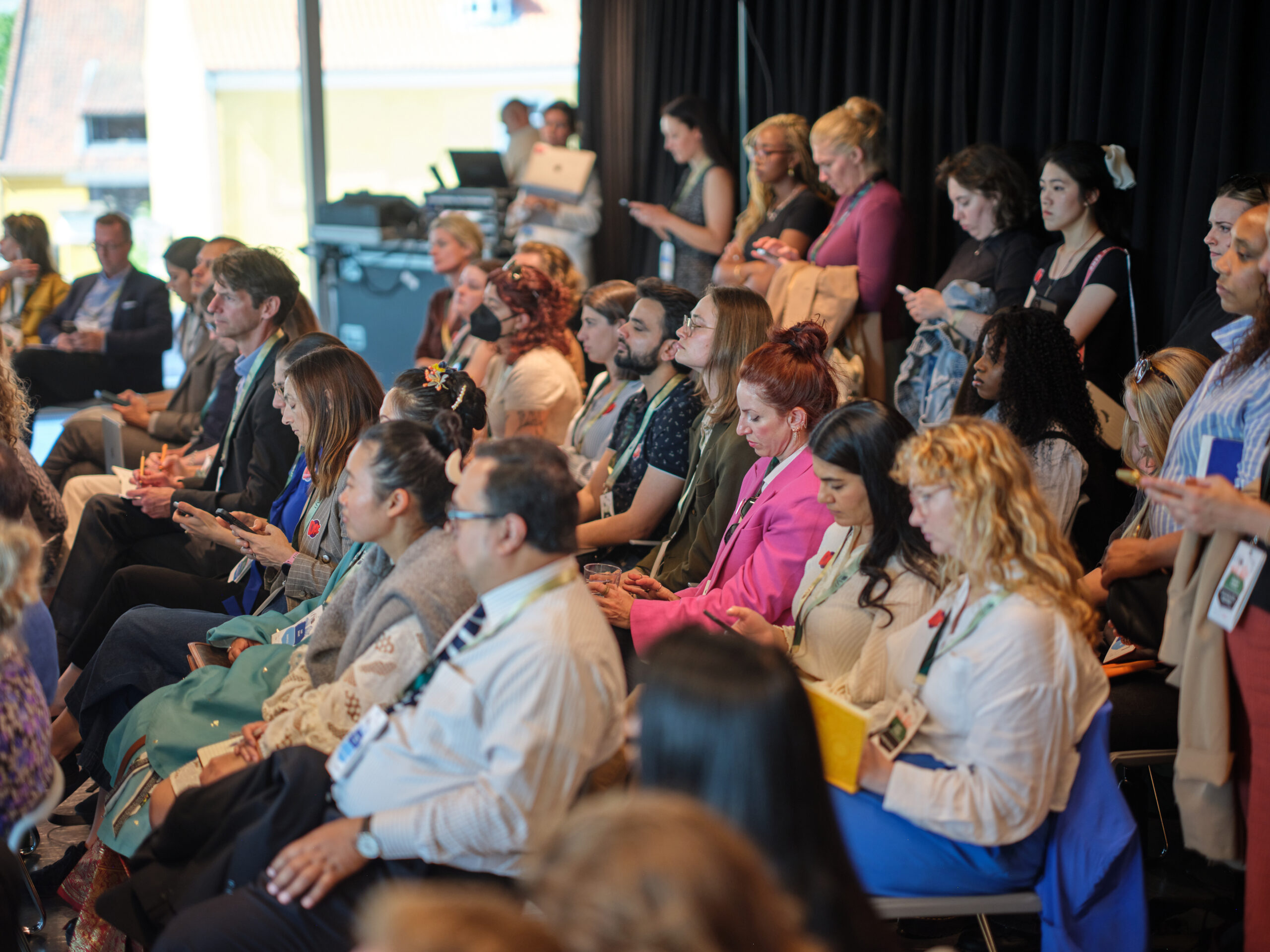Friday 24 May: On 21-23 May, Global Fashion Summit: Copenhagen Edition 2024 assembled over 1000 esteemed representatives from brands, retailers, NGOs, policy, manufacturers, and innovators from both the fashion and adjacent industries to unlock the next level of sustainability. Presented by Global Fashion Agenda (GFA), the non-profit organisation that is accelerating the transition to a net positive fashion industry, the Summit marked its 15-year anniversary at the iconic Copenhagen Concert Hall.
The event’s theme, ‘Unlocking the Next Level’, impelled participants to urgently act on the learnings from the forum to support the implementation of solutions to reach both near and long-term goals. Under this premise, the Summit presented content centred around evidence-based impact, with much of the programme dedicated to educational and action-oriented business case studies.
Each session in the programme targeted a next level barrier to progress and integrated a solution unlock to overcome the barrier. The 33 content sessions across the Summit’s three stages included: ‘Future Fibers: Enabling the Circular Model’. ‘Lead or Be Led’, ‘Fragmented Futures: Fashion’s Policy Agenda’, ‘Pathways to Indigenous Partnership’, ‘Reverse Logistics for Circular Fashion Systems’, ‘Towards Binding Agreements on Wages’, and many more. View the full programme.
Attendees heard from over 110 speakers including Her Majesty The Queen of Denmark;
Marie-Claire Daveu, Chief Sustainability and Institutional Affairs Officer, Kering; Mehdi Benabadji, CEO, Brioni; Ryan Gellert, CEO, Patagonia Works & Patagonia; Adam Karlsson, CFO, H&M Group; Halide Alagöz, Chief Product Officer, Ralph Lauren Corporation; Paul Polman, Business Leader, Campaigner, Co-Author of Net Positive; Kaisa Tikk, Head of Commercial Sustainability, Maersk; Nicolaj Reffstrup, Founder, GANNI, Bárbara Peñafiel Durruty, Circular Economy Policy Implementation Coordinator, Ministry of Environment of Chile; Fatih Konukoglu, Chairman, Re&Up; Edwin Keh, CEO, The Hong Kong Research Institute of Textiles and Apparel; Francisco Souza, Senior VP Global Indigenous Peoples and Local Communities Center, Conservation International; Harish Ahuja, Managing Director and Chairperson, Shahi Exports Pvt. Ltd.; Nemanthie Kooragamage, Director – Group Sustainable Business, MAS Holdings; and many more. View all speakers.
Leadership Roundtables to Catalyse Action
The Summit also facilitated 18 strategic roundtable meetings that brought together curated groups of executives, policy makers, leading industry voices, and sustainability experts from across the value chain and different markets for fruitful dialogues on how to address pressing sustainability issues and act accordingly, including: Building Circular Systems for India, co-hosted by SU.RE – Sustainable Resolution and supported by British Council India; Pay Equity Interventions in European Value Chains, co-hosted by PwC; Indigenous Partnership for the Fashion, Apparel and Textile Industry, co-hosted by Ralph Lauren and Conservation International; Impactful Influence, co-hosted by UN Environment Programme; Accelerating Collective Action for Circular Materials, co-hosted by Mango; and many more. View the Roundtable programme.
Previous Summit roundtable meetings held in 2022 and 2023 effectively instigated the formulation of new GFA impact and policy programmes such as the Renewable Energy Initiative, Global Circular Fashion Forum, and the Global Textiles Policy Forum.
Prominent brands and organisations unveiled new actions and initiatives at the event, highlights include:
- GFA launched the Fashion CEO Agenda 2024 – a strategic resource designed to steer fashion organisations towards achieving a net positive industry by 2050. In line with the 2024 theme of Global Fashion Summit, this year’s Fashion CEO Agenda presents five pivotal opportunities for fashion executives and the industry at large to unlock transformative impact. Read more.
- GFA and PDS Ventures revealed Bloom Labs as the winner of the Trailblazer Programme 2024 – a project to identify promising early-stage innovators who are working to accelerate the transformation of the fashion and textile industry. Eight shortlisted Trailblazers were showcased at the Summit and the winner, Bloom Labs, will now receive a significant equity investment and commercial and operational support to help bring the innovation to scale. Read more.
- ACT is proud to have announced during the Global Fashion Summit, that it has successfully supported brands and IndustriALL in signing individual legally binding support agreements. This support is tailor made to support the ongoing collective bargaining process in Cambodia for improved wages and working conditions. Read more.
- The Ellen MacArthur Foundation announced The Fashion ReModel, a demonstration project that involves leading brands from across high-end, activewear, retailers, mid-range, and high-street. It aims to identify solutions and unlock barriers in order to scale circular business models and begin to decouple revenue from production. Read more.
- GFA co-hosted a roundtable with Copenhagen Infrastructure Partners to progress the Renewable Energy Initiative. During the session, participants identified manufacturing countries that could benefit from renewable energy infrastructure, what current barriers are preventing renewable energy uptake, and what opportunities there are to shape solutions with the renewable energy sector. Read more.
- The Fashion Pact in partnership with Apparel Impact Institute, Guidehouse, and DBS Bank, announced brands commitment to the Future Supplier Initiative – a collective financing model for brands to support suppliers in accessing affordable loans to decarbonise their factories. Full details launch 13 June 2024. Read more
- Launched at the Global Fashion Summit, the Indigenous Partnership Principles for the Fashion, Apparel and Textile Industrieswere developed in partnership between Conservation International and Textile Exchange with direct input and leadership from Indigenous Peoples and local communities. The principles include 12 criteria to guide companies to better center Indigenous Peoples and local communities’ rights and perspectives across product development initiatives and supply chains. Read more.
- The eight members of GFA’s Next Gen Assembly programme participated in a closed-door Roundtable ‘How Can Fashion Value Economies of Wellbeing?’, co-hosted by Centre for Sustainable Fashion and Target. Building on the Next Gen Assembly programme’s topical focus, the Members explored the power of economies of wellbeing for driving change in the fashion industry and took inspiration from the experiences of the participating industry leaders. Read more.
Innovation Forum connected fashion companies with sustainable solution providers
This year’s Summit also presented an Innovation Forum, enabling small and large companies to meet with 31 sustainable solution providers – equipping them with the concrete tools to quickly turn words into meaningful actions. More than 400 facilitated introductions and business meetings between fashion companies and sustainable solution providers took place during the Summit.
Federica Marchionni, CEO, Global Fashion Agenda, says: “For 15 years GFA has used the Summit to activate impact and forge new initiatives while educating and mobilising the fashion industry. Sustainability has moved from a peripheral concern to a central focus becoming an agenda-setter even in boardrooms. However, the pace of sustainability progress has not accelerated enough to respond to our changing world and this year’s Summit was focused on identifying the barriers to Unlock the Next Level and accelerate further implementation. We have reached a polarisation point where the geopolitical environment around us is threatening to stunt our progress and I must emphasise that we need to unite to meet the 2030 and 2050 agenda. Whether we differ in geographies, cultures or political mindsets, sustainability must be a unifying bond among all of us. The Summit championed evidence-based strategies poised to reshape the business ethos, placing net positivity as the overarching goal. Now, each and every company must depart from business as usual and as intentions meet determination, I eagerly await the next level of fashion’s systemic transformation.”
Global Fashion Summit: Copenhagen Edition 2024 was supported by Principal Sponsor, RE&UP, a circulartech company reshaping the traditional textile-to-textile paradigm. Together with affiliated company ISKO, one of the world’s leading global textile companies with over a century of textile innovation experience, they are committed to a more responsible and technologically evolved future for textiles and fashion.
For more information about the Summit visit globalfashionsummit.com. Learn more about Global Fashion Agenda at globalfashionagenda.org.




